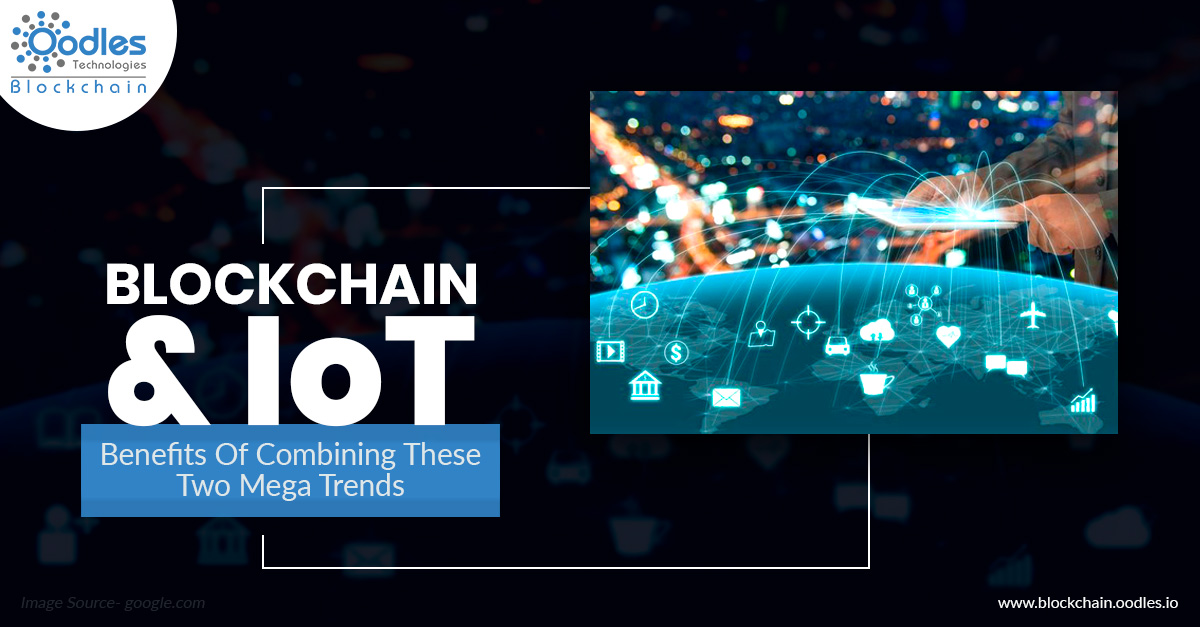-
The Internet of Things and Blockchain are two megatrends that are creating a great deal of hype and excitement. And it has not happened only in the technology area but in the wider business world as well. Many technology experts believe that these two megatrends of 2018, IoT and Blockchain, are all set to revitalize all aspects of our lives. However, others think that there is a lot of hot air surrounding both ideas, and a lot of information is yet to be proven.
IoT is a term that describes the existing proliferation of always-online, data-gathering devices in our professional and personal lives. And Blockchain refers to an encrypted distributed data storing (computer filling system) designed to enable the creation of real-time, tamper-proof records.
So, when these two technologies, IoT and Blockchain, are put together, in theory, you can have a secure, verifiable, and permanent way of storing data processed by "smart" machines and IoT.
Why Bring IoT and Blockchain Together?
There are so many significant advantages to this idea of building smart machines that will be able to communicate and operate via blockchain technology.
4 Important Benefits Of Combining These Two Mega Trends:
First:
The main problem is the issue of oversight, an unintentional failure to notice something. With a myriad of data transactions taking place among numerous networks owned and administrated by multiple entities, an immutable and permanent record means that custodianship can be tracked as physical goods, or data, pass between nodes in the supply chain. It's because Blockchain records are extremely transparent- activities can be tracked and assessed by an entity authorized to connect to the network.
If any breakage occurs, something goes wrong, or data leaks where it mustn't, the blockchain record will make it quite easy to determine the weak link. And hopefully, will take the necessary actions.
Second:
The utilization of distributed and encrypted storage means that all parties involved in the supply chain can trust data. Machines will record each detail of transactions taking place between themselves securely, especially with no human oversight.
Furthermore, without the private keys allowing written access to the blockchain, humans won't be able to alter the record with incorrect or inaccurate information.
Also Read: The Arrival of GDPR Causes Major Turbulence Across The EU
Third:
The revolutionary "smart contracts" features offered by a few blockchain networks, such as Ethereum, can allow the creation of such agreements that will be executed only when the pre-determined conditions meet. It will be extremely helpful, for instance, in authorizing one system to enable a payment, after conditions indicate that successful delivery of a service has been provided.
Fourth:
Blockchain offers the underlying potential of overhauling the overall security of the IoT (Internet of Things). The majority of data generated by IoT is extremely personal- for instance, surprisingly, smart home devices have access to personal records about our daily routines and lives. This data is required to be disseminated with other services and machines in order to be beneficial for us. However, it also indicates that there will be chances for hackers to attack us. Thus, businesses and governments using IoT would also have to contend with the ever-increasing scope for data breaches by criminals, foreign enemies, or rivals.
Enabling access to data from IoT devices to be handled through blockchains would mean an extra layer of security that any malicious actor would have to take another way- the layer will be secured by some of the best encryption standards available.

Our Offices
INDIA
Emaar Digital Greens, Sector 61,
Gurugram, Haryana
122011.
Welldone Tech Park,
Sector 48, Sohna road,
Gurugram, Haryana
122018.














